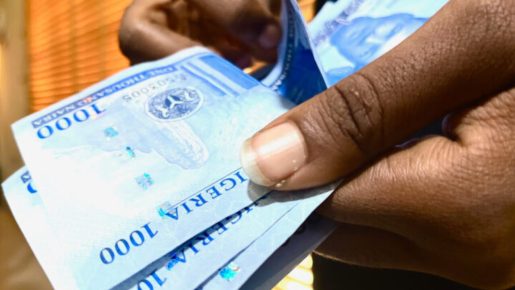The year 2023 proved to be a rollercoaster for the global economy, marked by challenges such as inflation, escalating interest rates, tight labor markets, and geopolitical shocks. Nigeria, the economic giant of Africa, was no exception. Within its financial sector, highs and lows unfolded, creating a tapestry of events that shaped the economic narrative.
Naira Redesign and Cash Withdrawal Limits: A Stormy Start
The year kicked off with turbulence and controversy as the Central Bank of Nigeria introduced policies around naira redesign and cash withdrawal limits. Governor Godwin Emefiele’s announcement that certain banknotes would cease to be legal tender triggered a wave of anguish among businesses and families. The subsequent redesign aimed to pull substantial amounts of money back into the banking system, citing that a significant portion of the currency circulated outside commercial bank vaults.
However, the redesign, coupled with cash withdrawal limits, resulted in a scarcity of naira notes, stifling economic activities. Point of Sales (PoS) operators reacted by increasing transaction charges significantly, leading to protests, attacks, and looting of bank premises. Despite a Supreme Court ruling extending the validity of old banknotes, scarcity persisted, fostering a surge in digital transactions as Nigerians sought alternatives to cash.
Emefiele’s Dramatic Episode
In a twist of events, shortly after assuming the presidency, Asiwaju Bola Tinubu suspended and subsequently arrested former CBN Governor Godwin Emefiele. The legal drama reached its peak in July, with clashes between Department of State Services (DSS) agents and prison officials over Emefiele’s custody. After months of detention, he regained freedom in December, facing charges of procurement fraud amounting to N1.2bn.
New Leadership, New Vision
Emefiele’s exit paved the way for a new leadership era at the CBN. Acting Governor Folashodun Adebisi Shonubi took the reins until the Senate confirmed Olayemi Cardoso as the new governor. The Cardoso-led team signaled a shift, emphasizing the discontinuation of direct quasi-fiscal interventions and a focus on orthodox tools for monetary policy. Their objectives included achieving price stability, fostering sustainable economic growth, stabilizing the exchange rate, reducing interest rates, and increasing the capital base of commercial banks.
Inflation, Poverty, and Loan Dependency
Nigeria grappled with a headline inflation rate reaching a 20-year high of 28.2% in November. The surge, driven by economic challenges, pushed an additional four million Nigerians into poverty, according to the World Bank. With 27% of the population relying on loan apps for survival, the intersection of inflation and poverty created fertile ground for lenders.
Responding to Inflation: Interest Rates and Naira Devaluation
Following the global trend, the CBN raised interest rates throughout 2022 and 2023 to curb inflation. The unification of all foreign exchange market segments in June, coupled with the devaluation of the naira, led to a significant depreciation, exceeding 85% at the official market.
Titan Takes Over
In a noteworthy development, Titan Trust Bank Limited acquired the 106-year-old Union Bank of Nigeria, initiating operations in October 2019. The Union Bank later announced the delisting of its shares from the Nigerian stock market.
Naira Scarcity Resurfaces
Despite data indicating an increase in the currency in circulation, major cities in Nigeria experienced a return of naira scarcity, mirroring the year’s beginning. This puzzling phenomenon contradicted CBN data, which reported a peak in the currency in circulation at N2.99 trillion as of October 2023.
Emefiele’s Allegations
As naira scarcity resurfaced, former CBN Governor Emefiele faced renewed scrutiny. Accusations from a Special Investigation Panel detailed alleged offenses, including the unlawful removal of $6.23m, using ill-gotten wealth to acquire banks, and lodging billions of naira in foreign accounts without proper approvals.
In summary, the economic landscape of 2023 in Nigeria was a tapestry of challenges, transformations, and legal dramas. The nation navigated through currency redesign, leadership changes, inflationary pressures, and geopolitical shifts, all while confronting the specter of naira scarcity and allegations against a former central bank governor.











